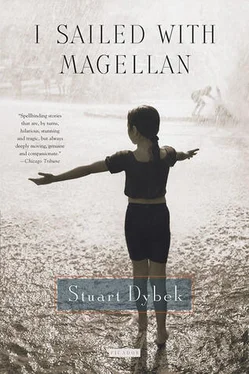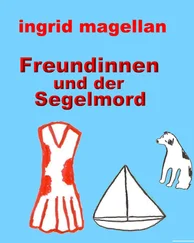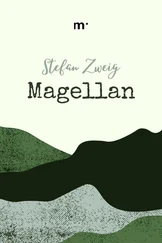In senior year, after Angel was expelled, Stosh and I pretty much dropped out — though, unlike me, Stosh managed to graduate. He would have lost his Rexall scholarship if he hadn’t. The last months of school we’d show up in the mornings, then cut classes after lunch and joyride. That’s what we were doing on a springlike day in April when we drove to Lincoln Park and hung around watching people get their yachts back into the water. All we knew about boats was that having one was the ultimate dream.
We were walking away from the boat slips when a guy called, “Say, lads, if you have some time I could use help with a boat.”
His white hair was visible beneath a blue captain’s cap. He wore white canvas shoes, a blue blazer, and yellow ascot. Stosh and I glanced at each other. He didn’t seem to fit any of our immediately recognizable categories of weirdo.
“Come on, it’s a perfect day for a boat ride,” he said and set off briskly.
We shrugged and followed.
He led us through the park, keeping a purposeful, nautical pace as he circumvented rain puddles on the winding walkways, explaining to us over his shoulder the differences between ketches and yawls. It was a walk leading away from the harbor, and just about the time we got suspicious enough to stop, he paused. We stood outside a fence surrounding the manmade lagoon that bordered Lincoln Park Zoo. On the other side was a rental stand for bright yellow, molded plastic pedal boats.
“I’m a little short today, fellows,” the captain said, “but if you could pick up the rental, I’d be happy to pedal.”
We crossed Howard Street into Evanston, a border marked only by the last liquor store on the Chicago side, and followed Sheri-dan Road as it swerved beneath an archway of shady trees, past mansions, and the campus of Northwestern, which stretched for blocks along the lake. The thwack of tennis balls echoed from courts, and the school with its trimmed lawns and ivy walls had a country-club look. Students in polo shirts and Bermuda shorts wandered the grounds; summer classes must have been in session. When we stopped at a light before one of the frat houses that lined the street, a red Porsche convertible with three guys wedged in pulled out of a driveway into the lane beside us. They were grinning; the driver gunned the engine like they wanted to drag.
“What Greek youth gang do you lads belong to?” Stosh inquired.
They shouted something that sounded more like “greaser” than Greek initials, impossible to make out because Stosh had tromped the gas and the Merc stood vibrating like an airliner about to sprint down the runway. A cloud of blue smoke engulfed the intersection. The guys in the Porsche clutched their throats and pretended to retch over the side of the car. The light flashed green, and while Stosh was still thundering at a standstill, they raised a whiskey bottle in salute and shot away.
Stosh popped it into first, and the Merc lurched forward, coughing and choking as it crawled across the intersection, then backfired into second, caught, and pinned us back in our seats. By third we were coming up on them fast with no traffic between us. Two of them whirled around to look back at us and the driver goosed it, but the Merc kept gaining. I glanced at the speedometer and cheap tach bandaged to the dash, but they were jiggling too much to read; then the four-barrel kicked in, and the Merc bolted forward as if it had discovered an extra gear. Stosh downshifted, whining into a curve, and on the next straightaway, rather than passing them, hung on their rear bumper as if to say, “Can you snap it up?” I could see their shoulders hunched, waiting for a blow. The white dome of Baha’i suddenly rose up over the trees, and we braked into a tire-peeling left onto a cobblestone side street, and rolled to a stop along the curb. When Stosh cut the engine, there was an immediate twitter of birdsong and the sense of peace that the temple imposed on the space around it.
“At least the ass end didn’t skate all over the street,” Stosh said as we slammed out of the car doors.
It was the middle of the week and no one was around, no guards — we’d never seen a guard there. Flights of gulls and pigeons circled the polished dome. Even the pigeons looked exotic.
Everything about Baha‘i seemed to circle: the stairs rising past terraced gardens, each garden planted with different flowers to symbolize the beauty of unity in diversity. That all was explained in a brochure I’d picked up during one of our first visits. We’d expected the brochure would be yet another attempt to collect money while saving our souls, but mainly it detailed the design of the temple. The dome rose from a circular-looking nine-sided base — nine because that number symbolizes comprehensiveness, oneness, and unity. The nine doorways were framed by pylons engraved with mystical symbols: the hooked Zoroastrian cross — which we were afraid was a swastika until we read the brochure — the Star of David, the Christian cross, the star and crescent of Islam, and the nine-petaled rosette of the Baha’is. At Baha’i, every detail was symbolic.
But it wasn’t the gardens or the temple itself we’d come to visit. Instead, we jogged back across Sheridan and, ignoring the locked gate and rusted No Trespassing sign, flipped the fence and followed a path that led past a maintenance building polished the same satiny white as the temple. Behind it, a stand of willows concealed a grassy dune sloping to the lake.
The beach was hidden, screened by willows. We’d never noticed any evidence that anyone besides the sandpipers used it. The powdery sand was dazzling white. Our theory was that the sand was quartz, one of the materials that gave the temple its luster, and that the construction crew had dumped what had been left over on the beach. It was gradually washing away, leaving the coarser, natural sand behind. From the shore, the temple dome ascended above the willows as if Wilmette didn’t exist. For us, the beach was the locus of the place we called Baha’i.
We piled our clothes on the sand and weighed them down with our shoes. The mouse below Stosh’s eye looked purple when he set down his shades. We waded out along a sandbar, the shallow water lukewarm with sunlight. When it sloped off we dove under, swam out, then, treading water, turned to face the beach, where we could see the dome over the dune and keep an eye on our clothes.
“Ah! This is the life,” Stosh said. “No jammed parking lots, no lifeguards trying to save you, no peons peeing in the water.”
“Speak for yourself.”
He gave me a look of horror and began splashing wildly. “Is not even Baha’i sacred?”
“I’m experiencing unity and oneness.”
I swam out farther, each stroke another stroke away from the muggy nights of typing overdue papers, the mornings of waiting for the Manpower truck to show, the question of what to do now that high school was over. Out where it was deep, I kicked down through progressive levels of cold that took my breath away, then shot up cleansed, bobbing on the surface of what felt like the eternal present: gently rocking water nearly indistinguishable from the sparkle of sunlight and reflection of cloudless blue sky. Gulls wheeled, yipping, and I yipped back silently. Stosh swam over, and we floated on our backs.
“I finally brought Dahl out here last night,” he said. “Ever since fucked-up prom night she’s been saying, ‘Take me to Baha‘i.’” He caught Dahl’s Lithuanian accent without seeming to mimic her.
“So, how’d she like it?”
“We got into a fight. I think we broke up.”
“Yet again?”
“Yet again,” Stosh said. “It was an evening doomed from the start. She waited until my trousers were down to tell me she’s pissed about my going to Mexico. Then she adds she’s heard maybe I’m already in Mexico — namely one Nita Rosario.”
Читать дальше












